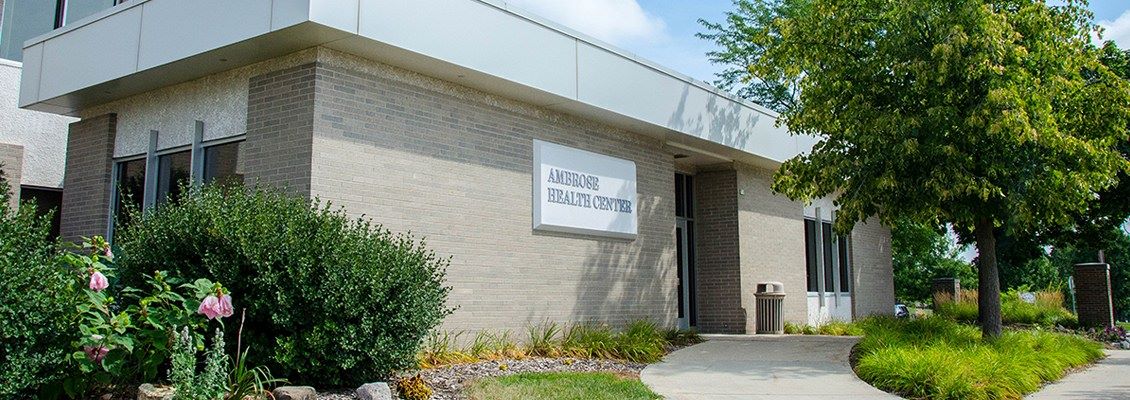Exercise
Wellness Information
UHCS Services
The wellness resource center provides multiple exercise related brochures and resources. Call 262-472-1882 to pick up materials.
Overview
Becoming and staying physically active can improve your health both short-term and long-term. The more you do, the greater the benefits and the better you will feel. For health benefits, physical activity should range from moderate to vigorous intensity. This could mean walking, gardening, climbing the stairs, playing a sport or running.
The recommended amount of physical activity for 18 to 64 year olds is getting at least 2 hours and 30 minutes of moderate aerobic physical activity OR 1 hour and 15 minutes each week of vigorous aerobic physical activity. Being active 5 or more hours each week can provide even more health benefits. Adults are also recommended to do strengthening activities, like push-ups, sit-ups and lifting weights, at least 2 days a week.
Moderate physical activities include:
- Walking briskly (about 3 ½ miles per hour)
- Bicycling (less than 10 miles per hour)
- General gardening (raking, trimming shrubs)
- Dancing
- Golf (walking and carrying clubs)
- Water aerobics
- Canoeing
- Tennis
Vigorous physical activities include:
- Running/jogging (5 miles per hour)
- Walking very fast (4 ½ miles per hour)
- Bicycling (more than 10 miles per hour)
- Heavy yard work, such as chopping wood
- Swimming (freestyle laps)
- Aerobics
- Basketball (competitive)
- Tennis (singles)
Tips get physically active and stay active:
- Choose an activity that's fun.
- Change your activities, so you don't get bored.
- Walk while you talk on the phone.
- Play sports instead of watching a DVD sometimes with friends.
- If you can't set aside one block of time, do short activities during the day, such as three, 10-minute walks.
- Create opportunities for activity, such as parking your car farther away, taking the stairs instead of the elevator, or walking down the hall to talk to a coworker or friend instead of using e-mail.
- Don't let the cold weather keep you on the couch! You can still find activities to do in the winter like exercising to a workout video or joining a sports league or gym.
- Use different jogging, walking, or biking paths to vary your routine.
- Exercise with a friend or family member.
- Play with your children, nieces/nephews or neighbor kids.
- Make activities into social occasions-have dinner after you and a friend work out.
- Read books or magazines to inspire you.
- Set specific, short-term goals, and reward yourself when you achieve them.
- Don't feel badly if you don't notice body changes right away.
- Make your activity a regular part of your day, so it becomes a habit.
Staying Motivated
Staying motivated to be physically active can be hard. Homework, social events, friends, family and life just gets in the way or you simply become bored with what you are doing. It's easy to push exercise on the back burner. Here are some tips to keep you motived and enjoy being physically active.
- Set goals
- Start with simple goals and then progress to longer range goals. Remember to make your goals realistic and achievable. It's easy to get frustrated and give up if your goals are too ambitious. For example, if you haven't exercised in a while, a short-term goal might be to walk five minutes once or twice a day. An intermediate goal might be to walk 20 minutes three or four times a week. A long-term goal might be to complete a 5K walk.
- Make it fun
- Find activities or sports that you enjoy. You are more likely to stick with an exercise program if it feels like fun than work. Check out local sports leagues, try a new group fitness class, take advantage of the outdoors or try a dancing class.
- Make it part of your daily routine
- Start by scheduling exercise into your calendar. You can also slip in small doses of physical activity throughout the day. Walk to each class, take the stairs instead of the elevator, walk on a treadmill or bike on a stationary bike while you are studying or watching TV or do physical activity during friend get togethers.
- Use the buddy system
- You don't need to go through this alone. Invite friends and family members to join you during exercise. This could mean organizing a bunch of people to play a sport or simply walking with a friend to catch up on life.
- Reward yourself
- After each exercise session, take a few minutes to savor the good feelings that exercise gives you. This type of internal reward can help you make a long-term commitment to regular exercise. External rewards can help, too. When you reach a longer range goal, treat yourself to a new pair of walking shoes or new tunes to enjoy while you exercise.
- Write it down
- Write it down! Seeing the benefits of regular exercise on paper may help you stay motivated. It may also help to keep an exercise diary. Record what you did during each exercise session, how long you exercised and how you felt afterward. Recording your efforts can help you work toward your goals - and remind you that you're making progress.
Resources
Disclaimer
All information on this website is written by UHCS professional staff unless otherwise noted. No data is collected on visitors to this site. Financial Support for this web site is provided by University Health & Counseling Service, Division of Student Affairs, University of Wisconsin-Whitewater. This web site does not accept advertising.
This site is not meant to replace the advice of a health care or counseling professional. You should not rely on any information on these pages, or information generated for you by this site, to replace consultations with qualified professionals regarding your own specific situation. Some links take you to a source outside of UHCS. The owners of that site, not UHCS, are responsible for the content.



